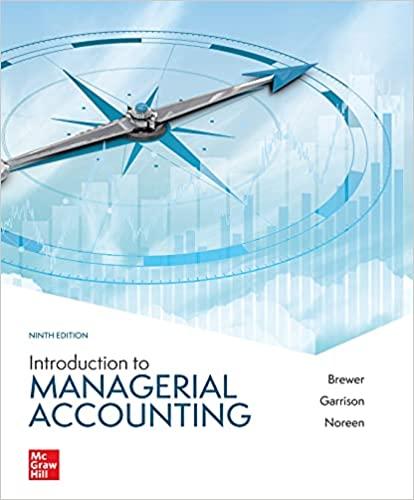

Analyzing and Interpreting Disclosures on Equity Method Investments General Mills Inc. invests in a number of joint ventures to manufacture and distribute its food products, as discussed in the following footnote to its 10-K report for the fiscal year ended may 26, 2019. Investments in Unconsolidated Joint Ventures We have a 50% equity interest in Cereal Partners Worldwide (CPW), which manufactures and markets ready-to-eat cereal products in more than 130 countries outside the United States and Canada. CPW also markets cereal bars in several European countries and manufactures private label cereals for customers in the United Kingdom. We have guaranteed a portion of CPW's debt and its pension obligation in the United Kingdom. We also have a 50% equity interest in Haagen-Dazs Japan, Inc. (HDJ). This joint venture manufactures and markets Haagen-Dazs ice cream products and frozen novelties. Results from our CPW and HDJ joint ventures are reported for the 12 months ended March 31. Joint venture related balance sheet activity follows: $ millions 26-May-19 27-May-18 Cumulative investments $452.9 $499.6 Goodwill and other intangibles $472.1 $488.7 Aggregate advances included in cumulative investments $249.0 $295.3 2019 2018 2017 Joint venture earnings and cash flow activity follows: Fiscal Year ($ millions) Net sales CPW HDJ Total net sales Gross margin Earnings before income taxes Earnings after income taxes $1,674.7 $1,734.0 $396.2 $430.4 $2,043.9 $2,164.4 $744.4 $853.6 $155.4 $216.2 $111.9 $176.7 $1,648.4 $435.1 $2,083.5 $865.9 $243.3 $190.3 $ millions Current assets Noncurrent assets Current liabilities Noncurrent liabilities 26-May-19 $895.6 $839.2 $1,517.3 $77.1 27-May-18 $936.5 $902.5 $1,579.3 $72.6 a. How does General Mills account for its investments in joint ventures? How are these investments reflected on General Mills' balance sheet, and how , generally, is income recognized on these investments? Estimate the amount of income that General Mills included in its 2019 income statement as Equity method income. b. Does the $117.5 million investment reported on General Mills' balance sheet sufficiently reflect the assets and liabilities required to conduct these operations? Explain. Note: The $452.9 million disclosed includes cash advances to the joint venture partners of $335.4 million. The net $117.5 million represents the equity method investments. c. Do you believe the liabilities of these joint venture entities represents actual obligations of General Mills? Explain. d. What protentional problem(s) does equity method accounting present for analysis purposes? Analyzing and Interpreting Disclosures on Equity Method Investments General Mills Inc. invests in a number of joint ventures to manufacture and distribute its food products, as discussed in the following footnote to its 10-K report for the fiscal year ended may 26, 2019. Investments in Unconsolidated Joint Ventures We have a 50% equity interest in Cereal Partners Worldwide (CPW), which manufactures and markets ready-to-eat cereal products in more than 130 countries outside the United States and Canada. CPW also markets cereal bars in several European countries and manufactures private label cereals for customers in the United Kingdom. We have guaranteed a portion of CPW's debt and its pension obligation in the United Kingdom. We also have a 50% equity interest in Haagen-Dazs Japan, Inc. (HDJ). This joint venture manufactures and markets Haagen-Dazs ice cream products and frozen novelties. Results from our CPW and HDJ joint ventures are reported for the 12 months ended March 31. Joint venture related balance sheet activity follows: $ millions 26-May-19 27-May-18 Cumulative investments $452.9 $499.6 Goodwill and other intangibles $472.1 $488.7 Aggregate advances included in cumulative investments $249.0 $295.3 2019 2018 2017 Joint venture earnings and cash flow activity follows: Fiscal Year ($ millions) Net sales CPW HDJ Total net sales Gross margin Earnings before income taxes Earnings after income taxes $1,674.7 $1,734.0 $396.2 $430.4 $2,043.9 $2,164.4 $744.4 $853.6 $155.4 $216.2 $111.9 $176.7 $1,648.4 $435.1 $2,083.5 $865.9 $243.3 $190.3 $ millions Current assets Noncurrent assets Current liabilities Noncurrent liabilities 26-May-19 $895.6 $839.2 $1,517.3 $77.1 27-May-18 $936.5 $902.5 $1,579.3 $72.6 a. How does General Mills account for its investments in joint ventures? How are these investments reflected on General Mills' balance sheet, and how , generally, is income recognized on these investments? Estimate the amount of income that General Mills included in its 2019 income statement as Equity method income. b. Does the $117.5 million investment reported on General Mills' balance sheet sufficiently reflect the assets and liabilities required to conduct these operations? Explain. Note: The $452.9 million disclosed includes cash advances to the joint venture partners of $335.4 million. The net $117.5 million represents the equity method investments. c. Do you believe the liabilities of these joint venture entities represents actual obligations of General Mills? Explain. d. What protentional problem(s) does equity method accounting present for analysis purposes








